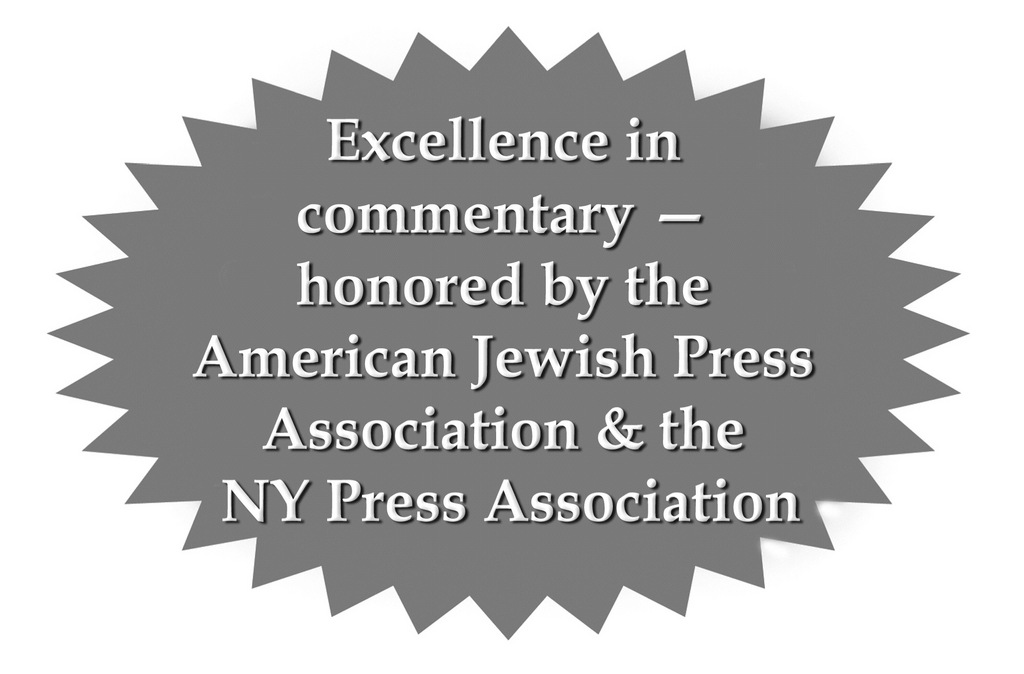Step up or stand back
From the other side of the bench
By David SeidemannIssue of August 29, 2008
The melodies are haunting — evoking feelings first experienced in the Holy Temple thousands of years ago. Melodies so holy, so ancient, that Jews praying in groups of ten or in groups of thousands are vigilant about employing them and only them in the High Holiday services. Finding a suitable chazzan can be tough in America, Europe and Israel. Imagine the difficulty in finding a person versed in the particulars and nuances of the liturgy in Korea!
Circa 1954, a young Ninth Corps quartermaster, in charge of supplies and equipment, is stationed just below the 38th parallel, the pre-Korean War boundary between North Korea and South Korea. He wasn’t supposed to be there. He was supposed to be in New York with his new wife who was expecting their first child. History will record that when their son was born months later, the Pidyon Haben ceremony, the redeeming of the first-born required by Jewish law, was held in Korea. That event made its way into the U.S. Army’s official newspaper, The Stars and Stripes.
At any rate, this man was technically exempt from serving in the U.S. Army as a result of his recent marriage. G-d’s will, disguised as a bureaucratic snafu, caused his deferment papers to become lost, and a brief stint at Fort Dix turned into thirteen months in Korea. Meanwhile, the chaplain assigned to that area was busily preparing for the upcoming Rosh Hashanah services. Ten days before Rosh Hashanah he posted a sign seeking a qualified soldier to serve as chazzan. Soon after the sign was posted a young soldier from Connecticut found his way to the chaplain’s tent, introduced himself and volunteered his services as a cantor for the Rosh Hashanah and Yom Kippur services. He claimed to have been a professional cantor back in the States. The chaplain breathed a sigh of relief as all seemed to be in order. Though they were thousands of miles away from home, they were just as close to G-d as ever.
Friday night and Shabbos services were held on the base and were attended by no more than 10-15 soldiers. For Rosh Hashana and Yom Kippur, hundreds were expected, 200 alone from the 24th Division. As the chaplain was leading the Friday night services, a week before Rosh Hashanah, a bell went off in his head. How come he never saw this chazzan-to-be at the Shabbos services? Perhaps he is new to the base, he thought. How come I never saw him request kosher food? Perhaps he had his own rations. The chaplain decided to walk to this young man’s tent and was horrified at what he saw. There in his tent, on the holy Sabbath day, was the High Holiday cantor-to-be, smoking a cigarette, in direct violation of Jewish law.
The chaplain knew he had to find another chazzan and so another sign was posted. In marched the Ninth Corps quartermaster from Brooklyn who was supposed to be home with his expectant wife. He was familiar with the ancient tunes and liturgy and he volunteered his services as the chazzan for the Rosh Hashanah and Yom Kippur Mussaf services.
Hundreds of soldiers from many bases converged at that one base to hear the 23-year-old answer his call to duty. Though at war, for those two days of Rosh Hashanah and again for 25 hours on Yom Kippur, peace and tranquility served as the backdrop for close to 800 soldiers led in prayer by a last minute stand in. They were united in prayer by solemn tunes known best by a man who should have been stateside.
Quite a story, unknown to me until my niece’s wedding in Baltimore the other night. Someone from the groom’s side brought along a magazine she had laying around her house in Monsey. It was dated September, eight years ago. She brought it because she noticed that the name of the “last-minute stand in” was Seidmann, which, though spelled differently than our family surname, spelled Seidemann, was pronounced pretty much the same. She wondered if perhaps that Ninth Corps quartermaster was somehow related to our side of the family. She showed the article to my father whose jaw dropped and eyes widened as he pored over that article that described how he, as a young soldier, led hundreds of fellow Jews in solemn prayer that High Holiday season in Korea in 1954.
Sixty years later he hasn’t changed. Every year since that fall of 1954, he has led the Rosh Hashanah and Yom Kippur services, mostly in nursing homes, providing some of the worshippers their last Rosh Hashanah services before leaving this world. He embraces every opportunity to serve the Jewish community in any and every capacity whenever and wherever needed.
So, all of us — great grandparents, grandparents, children, cousins, uncles, aunts, the whole Mishpacha — celebrated my niece’s wedding together. And my father celebrated something else as well. Memories of the sun setting over Korea, ushering in the holiest days of our life cycle, and praying for life — literally for life — in a war zone. I would venture to say that if one wants to really feel like they are praying for their life, a war zone is the place to be.
Every day, whether we are black or white, Jewish or not, something happens which presents us with the opportunity to either step up or stand back. My father, may he live and be well, chose to stand up and that which he stood up for remained with him every year since. Change is coming in this world and we can either mold it or watch it. The problem with watching it is that then someone else is shaping your future, and that, my friends, does not make a good soldier.

 41.0°,
Fair
41.0°,
Fair 




